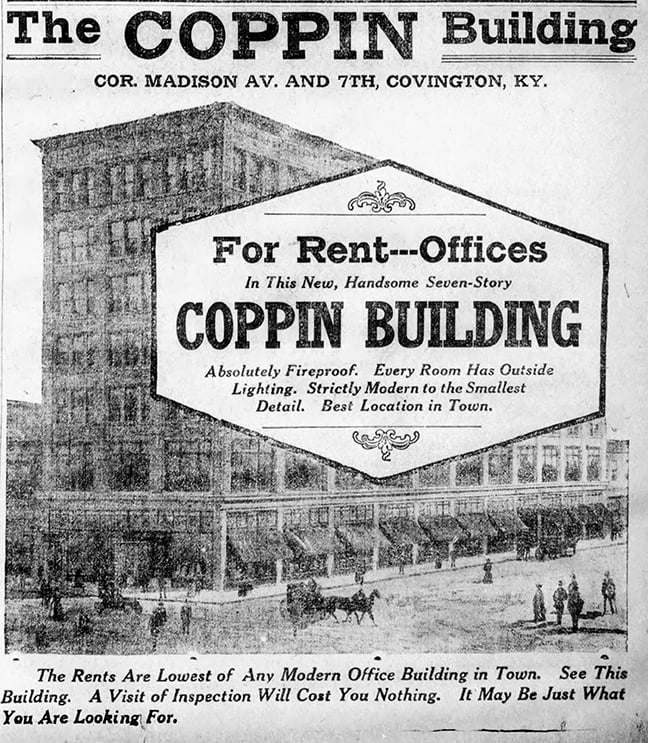LAKESIDE PARK
Lakeside Park City council listened to new council member Cassi Schabell ask for several changes in the minutes of a meeting, but in an unusual move, Mayor Paul Markgraf said there had to be a motion to adopt any amendment to the minutes, as well as a second before she could even suggest any changes. He overruled her changes, not only to the regular meeting, but also to the special meeting, speaking in an irritated voice and loudly ordering Schabell to vote for or against the minutes, but not allowing any changes to any minutes.

Council listened to and approved an audit report by Jim Sparrow from Rankin and Rankin, who said the city is in good financial shape.
An ordinance was read for the first time containing changes to the sidewalk ordinance, changes that came about due to the special meeting on January 30. Council member Schabell asked who authored the ordinance, a question which took the mayor by surprise, and he immediately said that was not an appropriate question. Eventually council member Brian Waite said he would sponsor the legislation. Apparently legislation has to be authored by a member of council, since they are the legislative branch. Schabell asked what was the protocol for introducing a piece of legislation, because she was told she could not introduce legislation. Mayor Markgraf told her she was out of order, and there was to be no discussion until after the second reading.
Council voted on a resolution opposing any legislation from the state concerning centralized collection of occupational taxes.
Schabell asked some questions for a resident who wanted to know about bands on his trees, and Markgraf explained they were done by an arborist hired by the city.
She also asked about the sidewalks beside state roads, and Markgraf again explained that the city has no authority over state roads, and the state has not agreed to fix them.
Later, Council member Schabell asked if she could introduce an ordinance concerning chickens, which she had written in response to citizens asking about ownership of chickens within the city. She thought it could be read for the first time, like the ordinance on sidewalks.
“Mrs. Schabell, you may submit whatever you wish us to consider,” Margraf stated. “We need to have a sufficient time to review it, and then it will be submitted to council. Every ordinance is run through our city attorney.”
He said the attorney has been ill, and they can’t do the review on a day’s notice. He also said he would not suggest special meetings with the attorney to run up the attorney’s bill.
Schabell said she did send it in draft form to the attorney a week ago, and sent it to the other council members also.
Markgraf said she could make a motion, but the city planned to have an ordinance on the chickens by the March meeting. Schabell made the motion, but no council member seconded it so the motion died. Schabell asked if she could meet with the attorney to see if the ordinance was properly written and Markgraf told her that it was an administrative request, and he will submit it to the attorney.
“Council members do not have the right to submit things directly to the city attorney, to the city engineer, or to expend money or to have them perform duties that are not authorized by the mayor,” he stated. “That is part of the mayor/council set up by the Kentucky Revised Statutes. I understand, and as I told you, it will be placed on the agenda for the next meeting.”
Schabell asked about the spending on recreation events in the city, and after chiding her for not coming up to the city and asking the clerk for the answers instead of bringing the questions to a council meeting, he explained about senior lunches and different events.
At the end of the meeting council member Brian Waite said he didn’t like the word ‘nefarious’ that had been introduced about possible city activities, and he was concerned about the tone in the meetings. He said he got on council because he loves the city, and he hopes everyone can keep their love of the city in mind.
PARK HILLS
John Chamberlin from Rankin and Rankin, gave a report on the annual audit for the city. He pointed out that usually each municipality is required to have 3 to 6 months of cash on hand for operating expenses, and that would be $811,000 to $1.6 million for the city of Park Hills. But he said that the city has $2.44 million on hand, which is about 11 months, so the city is in a very strong cash position.

Sister Shauna Bankemper from St. Joseph Heights came to talk to council about the fact that they have decided that one of the original buildings will have to be torn down. She told about how their community is only about 67 sisters, and their median age is now over 80. But she stressed that any decision that was made had to keep the mission and ministry of the community uppermost as a goal.
Council passed a resolution opposing any legislation allowing the state to institute centralized collection of occupational taxes.
FLORENCE
Florence Fire and EMS promoted three people to the Captain rank, Josh Corry, Richard Lang and Brent Wuest. They were sworn in while their families looked on.

Florence city council cleared the way for the new hotel in Florence as they approved the second reading of an ordinance changing a zoning map amendment.
After some discussion, the creation of a Transportation Improvement District passed, but with a vote of 6 to 4, as both Lesley Chambers and Angie Cable were not convinced a TID is necessary for the city.
Council passed a resolution opposing legislation that the state introduces concerning a centralized collection of occupational taxes by the state or any third parties. Both CAO Josh Hunt and former mayor, now commissioner, Diane Whalen warned against the government overreach in taking away home rule. Hunt said a bill asking for centralized collection of occupational taxes has been introduced by two people in Louisville, and the bill hints that they will also come after insurance premiums, for a fee.
Council authorized Mayor Julie Aubuchon to sign a third extension of the Rumpke trash contract. The garbage bill will increase from $6.62 per month to $7.02 per month, and the recycling fee will increase from $4.41 to $4.67. Still, as was pointed out, these rates are the lowest around the Northern Kentucky area.
COVINGTON
At the beginning of the Covington Commission meeting, Mayor Ron Washington read the requirements that the city has for residents who want to speak at the meeting. After the statement, resident Sam Phillips spoke out encouraging the city not to cooperate with ICE officials.

Resident Melissa Kelly said she liked the DEI programs in the city, and she disliked what she called ‘rainbow hushing’ and also encouraged the city to keep the programs.
Commissioners passed an order allowing the mayor to sign an interlocal agreement with Planning and Development Services (PDS).
City Administrative Officer Ken Smith gave a report about the CDBG community block grant for the city. He said the city gets about $1.8 million, and that money has been spent in the past on things like infrastructure repair, downpayment assistance, park improvements, repairs for seniors and low income citizens, and literacy programs. The city would like feedback from residents on the 5-year consolidation program and the one year action program, and they can respond to an online survey, or come to a hearing on February 20 at 5:30 p.m. at the Center for Great Neighborhoods on Martin Luther King Boulevard. Smith said this is a hearing not a voting meeting, and results will be presented to the commission.
Mayor Washington said he had the opportunity to speak at the Northern Kentucky Chamber of Commerce on the subject of inclusivity in the workplace, and he emphasized how inclusive the city of Covington has been.
TAYLOR MILL
Taylor Mill Commissioners faced a busy agenda Wednesday evening, but an ordinance to clean up words describing the relationship between commissioners and department heads engendered a longer discussion than other topics. Each commissioner has traditionally been a ‘liaison’ for a department head, but Attorney Jack Gatlin wanted to change the word liaison because it wasn’t in the original ordinance. The word ‘superintendent’ was in the original law, but no one liked that term. However the word liaison was not exactly what Mayor Dan Bell wanted, because he felt it limited the contact to a department head and the person on the commission who was assigned to them. Bell felt that he or any other commissioner should be able to talk to a department head, and if the department head had a problem, Bell felt that they should go to the CAO — in this case, Brian Haney. Other commissioners regarded the word liaison in a different meaning and didn’t want to do away with the term. They did agree to table the issue for further discussion.

Another topic that ended up in more discussion was whether the city should ask PDS for a text amendment for a doggy day care business as either a permitted use or a conditional use in a DG zone. Commissioner Rose Merritt explained that there would be 80 dogs in this particular business, and said the dogs would probably be outside a good amount of time. A resident explained that having 80 dogs outside barking a lot of time would be extremely noisy for her and her neighbors. Mayor Bell agreed, and suggested the location might not be good for the doggy day care. It would have a veterinarian office on one side and be in the same area as a medical office building.
Commissioners felt that they needed to hear from other residents but there is no caucus meeting this month, so they set a special meeting for February 24 at 6 pm to hear more discussion on the matter.
Commissioners approved the purchase of a new ambulance, and the purchase of some new playground equipment.
They also agreed to use their opioid abatement money for a multi-jurisdictional law enforcement navigator program.




















